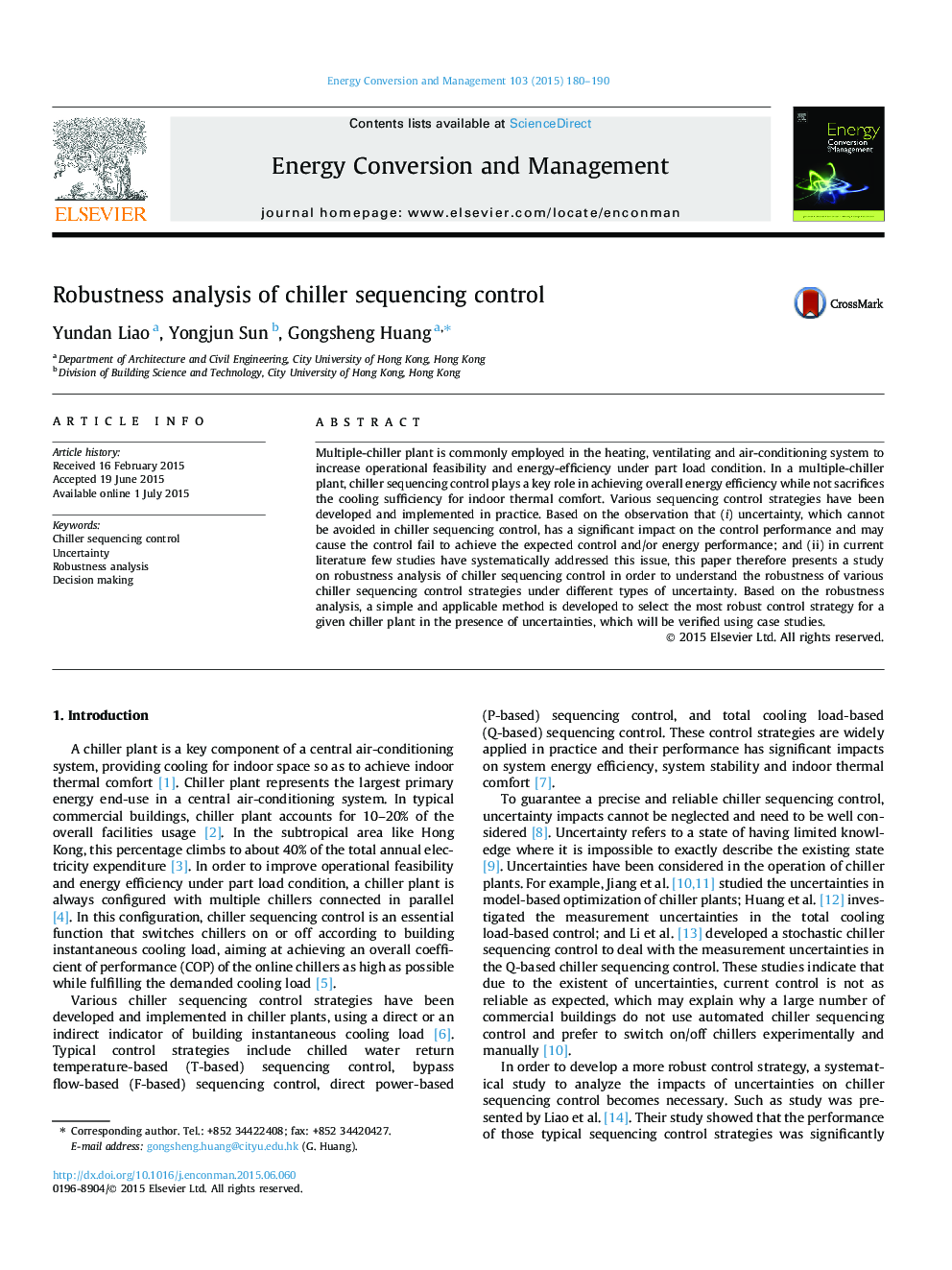| Article ID | Journal | Published Year | Pages | File Type |
|---|---|---|---|---|
| 771659 | Energy Conversion and Management | 2015 | 11 Pages |
•Uncertainties with chiller sequencing control were systematically quantified.•Robustness of chiller sequencing control was systematically analyzed.•Different sequencing control strategies were sensitive to different uncertainties.•A numerical method was developed for easy selection of chiller sequencing control.
Multiple-chiller plant is commonly employed in the heating, ventilating and air-conditioning system to increase operational feasibility and energy-efficiency under part load condition. In a multiple-chiller plant, chiller sequencing control plays a key role in achieving overall energy efficiency while not sacrifices the cooling sufficiency for indoor thermal comfort. Various sequencing control strategies have been developed and implemented in practice. Based on the observation that (i) uncertainty, which cannot be avoided in chiller sequencing control, has a significant impact on the control performance and may cause the control fail to achieve the expected control and/or energy performance; and (ii) in current literature few studies have systematically addressed this issue, this paper therefore presents a study on robustness analysis of chiller sequencing control in order to understand the robustness of various chiller sequencing control strategies under different types of uncertainty. Based on the robustness analysis, a simple and applicable method is developed to select the most robust control strategy for a given chiller plant in the presence of uncertainties, which will be verified using case studies.
